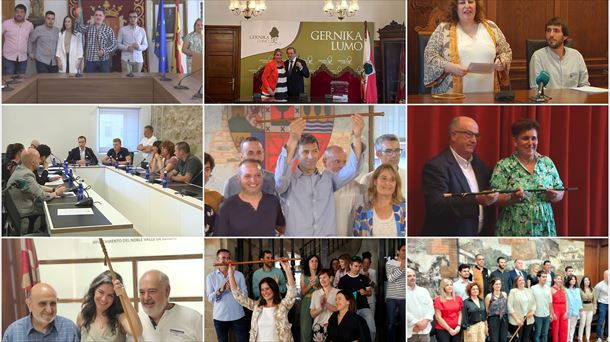The twenty new members of the CGPJ – ten elected on the proposal of the PP and another ten on the proposal of the PSOE – must choose a president from among the seven candidates they themselves put forward last week: five women and two men, all Supreme Court magistrates.
After five years of blockade, the General Council for the Judiciary (CGPJ) will vote this Tuesday for its next president from among seven candidates, five judges and two Supreme Court justices. Legal sources indicate that there are three favorites: Pillar Tesoa moderate progressive who was already a candidate in 2013; Paul Lukemoderately progressive proposed by the conservative sector, charged with judicial control over the CNI; And Ana Ferrerprogressive, who was part of the ‘trial’ tribunal. The other four candidates – located in the conservative sector – are Ángeles Huet, Antonio del Moral, Esperanza Córdoba and Carmen Lamela. Regarding the latter, it should be noted that she was the instructor of the ‘Altsasu case’ as well as the ‘processes’ at the National Court.
The same sources explain that although Teso, Lucas and Ferrer are in the progressive sector, two of them – Lucas and Teso – have a moderate profile. There are those who emphasize that Teso was considered on previous occasions as president of the CGPJ as a candidate for the Spanish government, and that this time this could work against her; Others, however, maintain that it is a strong name to lead the body and they bet that she might be chosen.
The seven candidates were nominated last Thursday by the twenty new members of the CGPJ in the context of the plenary session of the composition of the governing body of judges, which had been awaiting renewal since December 2018.
With next Tuesday’s vote, the CGPJ will take a position end to bicephaly which took place in 2022 with the resignation of Carlos Lesmes, after the presidency of the government body of judges and that of the Supreme Court were separated for the first time and remained in the hands of two different people because the members refused to accept Francisco Marín Castán – then interim vice president of the TS – as his new boss.
If a magistrate is elected, she would be the first woman in history to hold this position. The elected person must have the support of a three-fifths majority, that is, twelve of the twenty members – ten elected by the PSOE and ten by the PP.
Source: EITB
I am Ida Scott, a journalist and content author with a passion for uncovering the truth. I have been writing professionally for Today Times Live since 2020 and specialize in political news. My career began when I was just 17; I had already developed a knack for research and an eye for detail which made me stand out from my peers.



